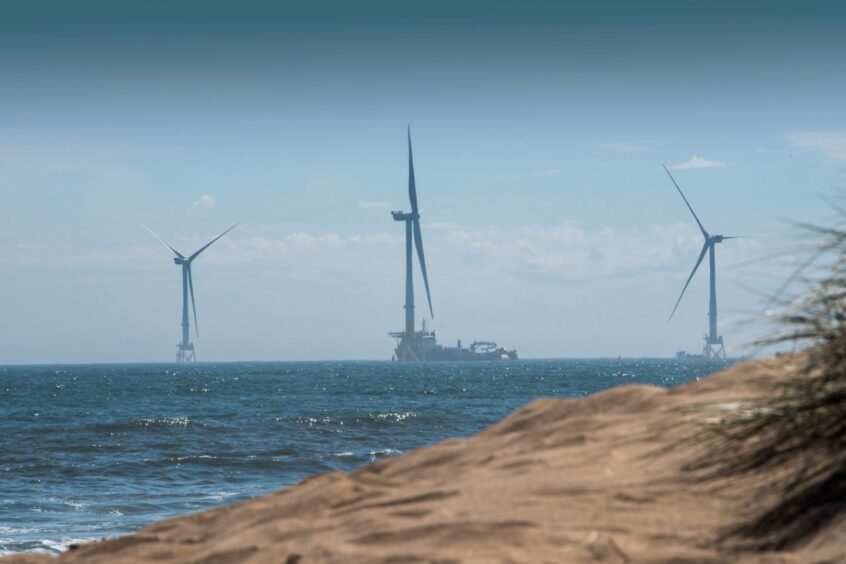
I spent nearly ten very happy and rewarding years working offshore with a great bunch of people operating deep water manned submersibles and ROVs mainly in the N Sea.
We had a lot of fun including diving off the bridge wing and swimming around the support ship in hot weather similar to that we’ve just experienced. Please don’t tell the HSE – the poor souls would go apoplectic!
In those days we were developing all the subsea vehicle techniques and technologies that we now take for granted. It was an exciting time because we were at the dawn of a new era of energy and we hoped – in vain as it turned out – increased national prosperity. It was also a period of almost constant invention because we were being asked to do things we’d simply never been asked to do before and believe me, that was also a lot of fun.
Now though we all recognise that UK Continental Shelf oil and gas production is in decline and that the claims by government that unexploited or “yet to be found” reserves can be relied upon to increase UK energy security should be treated with a huge dose of scepticism if not completely ridiculed.
In some senses that’s fine because this year’s heat waves and the drought they caused should have brought home to everyone the damage that burning hydrocarbons has done.
All that said there is no doubt that the North Sea and indeed all the waters around the Scottish coast have a huge if not larger and more permanent role to play in our energy saga. This won’t be just in the provision of acreage for the installation of offshore wind farms such as those being planned for the series of so-called Scotwind programmes but for tidal energy as well and critically – if we’re smart enough – as a feedstock for hydrogen production.
In fact, a project to design, build and test the integration of a hydrogen electrolyser with an offshore wind turbine just off Aberdeen is being developed by the Swedish state owned energy company Vattenfall. Yes, it’s state owned.
I am absolutely in no doubt that this will work and as a result the future of the North Sea should be assured as a major producer of hydrogen for domestic use and for export effectively for ever.
Oh by the way, recent research at Stanford University has led to the development of a prototype electrolyser that can generate hydrogen from seawater so it’s possible we won’t need desalination units. That said, we should also remember the North Sea could also be used for the production of fresh water which based on recent events may well become a necessity.
Scotland and Scottish business should really be as excited by this as it was when the oil and gas industry kicked off. I certainly am but as always I also have to ask the question as to what Scotland will get out of it given UK’s pitiful business record on investment which, as a share of GDP, is the lowest in the G7. This means that the chances of Scotland establishing – for example – an indigenous electrolyser manufacturer still remain bleak.
But there’s certainly the potential for clean, plentiful and essentially fixed price energy, the real prospect of permanent energy independence and resilience and the warm satisfaction we’ll get from setting an example to the rest of the planet. There will of course be some installation, fabrication and maintenance work but should we really just be satisfied with all that? I think not.
Future schemes may use electrolysers on small platforms floating or otherwise. We could build those but probably won’t. We may on the other hand simply bring in the electricity to power banks of electrolysers onshore but still using seawater.
Then there’s storage. Subsea tanks have been mooted as has storing hydrogen in old gas reservoirs. All seems a bit over the top to me and I’d rather see it brought ashore, distributed and stored regionally or locally.
We may need hydrogen subsea pipelines for import and export. Fortunately the Dutch company Strohm has just developed a Thermoplastic Composite Pipe specifically for hydrogen. Our European friends showing us the way ahead again. Aberdeen is the subsea centre of the world? Yeah right..
But as long as we don’t talk ourselves out of it which we’re really good at doing, it’s potentially going to be an exciting time again in the North Sea and elsewhere round our coasts. It could also provide us with that “just transition” we’re chasing. I may have to get my old safety boots out!
Dick Winchester is a former subsea engineer and an adviser to the Scottish government on the energy transition.
Recommended for you
